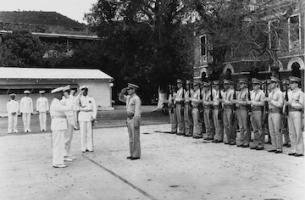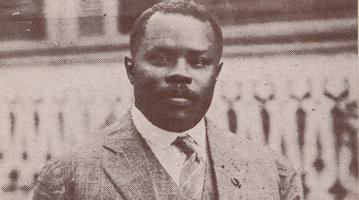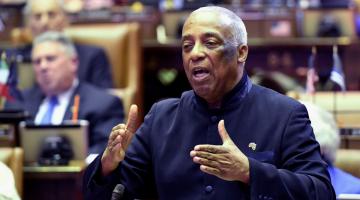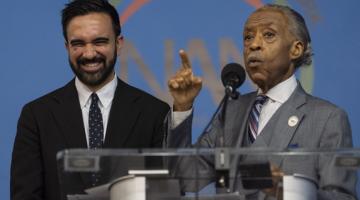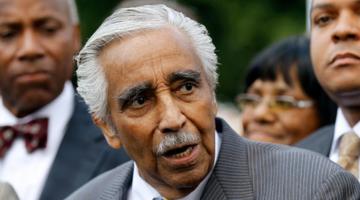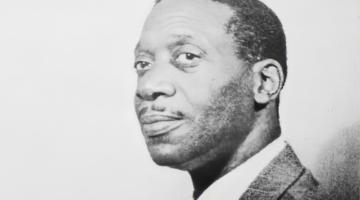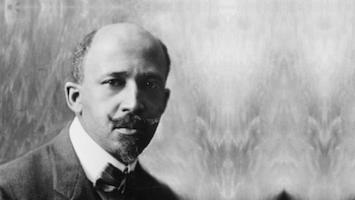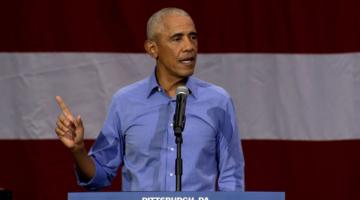In this series, we ask acclaimed authors to answer five questions about their book. This week’s featured author is Andrea A. Davis. Davis is Associate Professor in the Department of Humanities at York University, Toronto and coeditor of The Journal of Canadian Studies. Her book is Horizon, Sea, Sound: Caribbean and African Women's Cultural Critiques of Nation.
Roberto Sirvent: How can your book help BAR readers understand the current political and social climate?
Andrea A. Davis: This book was influenced by four major political and social events that have defined the last five years. I started writing in 2017, shortly after Donald Trump’s inauguration as president of the United States. I needed to think through, what was for me and many others, a keenly dystopic moment. It was impossible to ignore the growing expressions of hate against Black and Indigenous peoples, Muslims, Jews, women and other designated Others around the world, including in Canada where I am located. These events were unfolding during the celebration of Canada’s sesquicentennial, lauding the nation’s presumed racial innocence without acknowledging the profound harm of settler colonialism and chattel slavery. (Yes, chattel slavery was practiced in what we now call Canada!) I completed the second draft of the book in the midst of the 2020 global calls for racial justice and an escalating global pandemic. These events entered and shaped the thinking in Horizon, Sea, Sound. Whether I wanted to or not, I was writing in, through, and against these events. I offer this book, therefore, not only as a commitment to Black women’s survival but the survival of all oppressed peoples—as a call to live in reciprocity and in relation across our differences. This is the only way any of us will be able to live in something close to what we might call freedom. I’m trying to articulate a model of living, which refuses and exceeds the destructive greed and material overconsumption of racial capitalism, the white supremacy of the settler colonial state, and the competitive citizenship of Canadian multiculturalism. And, I turn specifically to Black women’s creative texts to imagine this radically different world—not as a utopia but as a practice of survival—and to consider the terms under which such a world might be possible.
What do you hope activists and community organizers will take away from reading your book?
In Mariame Kaba’s brilliant book, We Do This ‘til we Free Us (2021), she offers a definition of hope as a discipline that is deeply meaningful to me. This understanding of hope is not based in optimism; it is a grounded hope, which is also a daily practice (27). In these unprecedented times, I have been encouraged and strengthened by the work of activists and organizers, like Kaba, as well as by the newer protesters, committed to the work of creating a better future and galvanizing increasingly across racial, gender, religious, and ethnic divides. Their practical enactment of hope as a discipline makes my own living possible and creates the space for me as a writer and scholar to intervene in and disrupt discourses of power. I am profoundly aware of this and grateful. In some small way, I wish that this book will confirm and honor the work and labor of our community organizers. As they have done for me, I trust this book encourages and strengthens them—gives them an added language and grammar to refute colonialist and capitalist logics as they insist on the value of Black and Indigenous lives. I see the work I do in this book of imagining a future now as joined with theirs, as a demand for the kind of world we want to live in together now and not as a delayed future promise. I believe that if we can create a community of change makers in all corners of our societies—living, thinking, and writing as a hopeful practice—then real change may be possible.
We know readers will learn a lot from your book, but what do you hope readers will un-learn? In other words, is there a particular ideology you’re hoping to dismantle?
I’m contesting and trying to dismantle three pillars of the nation state: multicultural citizenship, racial capitalism, and the hierarchical nuclear family. Multicultural citizenship, which Canadians assume as the bedrock of an exceptional democracy, pretends that everyone has the same opportunities and rights and protection under the law. This performance of cultural tolerance is not the same as acceptance or even inclusion and ignores the deep social inequities and differential realities of Black, Indigenous, racialized and poor people, and women. This social hierarchy, however, is required to maintain the power of the wealthy and the gendered arrangements within modern western societies. Under racial capitalism, a racialized, gendered and poor underclass generates more and more wealth for a small elite minority in which white heteronormative patriarchy is overrepresented. The existing social arrangements, therefore, depend on Black people’s ongoing degradation and the continued possession of Indigenous lands. When these economic and social arrangements go unchallenged, racialized groups see each other as the enemy, struggling for recognition under the terms of a competitive model of citizenship where one group can win only if the other group loses. The construction of the “ideal” nuclear family further entrenches the existing social hierarchy by designating arrangements of family life that exceed normative gender relationships and are based on more flexible bonds of kinship as dangerous. Black women, in particular, who historically have worked as equals alongside Black men, who often raise families on their own, and who are the backbone of their communities have been presented in academic research, government reports, and even by some Black male leaders as the cause of the ongoing cycle of poverty and violence within Black communities. Any meaningful social change will require the exposure of these racist and sexist discourses, and a refusal of these kinds of hierarchical relationships.
Who are the intellectual heroes that inspire your work?
As a literary theorist, I see Black women writers as critical interlocutors providing me with the language to understand myself in the world and the tools to think against the various forms of oppression arrayed against Black life. The novels of the Jamaican writer, Erna Brodber, have helped me understand what it means to live in relation to a wider African diaspora. As a Caribbean immigrant in Canada, I have also come to rely on poets Dionne Brand and M. NourbeSe Philip to help me think further about what it means to live in diasporic displacement. It’s not surprising that in Horizon, Sea, Sound, these writers and others (including Esi Edugygan, Ramabai Espinet, Sylvia Hamilton, Nalo Hopkinson, Canisia Lubrin, Grace Nichols, Olive Senior, and Djanet Sears) provide the theoretical tools for the imaginative world making I’m trying to do. I am also deeply influenced by the scholarship of Rinaldo Walcott and Katherine McKittrick, two of the most influential scholars in Black Studies in Canada who have made the interventions I’m trying to do in thinking Blackness in Canada possible. Again, so many Black women writers, thinkers and feminists have been critical to my analysis, particularly in helping me understand the historical and contemporary contours of Black suffering, and then moving further to the possibilities for life and joy and imagining otherwise. I’m thinking here of Sylvia Wynter, Audre Lorde, Toni Morrison, bell hooks, Barbara Christian, Christina Sharpe, Tina Campt, and Saidiya Hartman. I’ve also learned so much about the possibilities for Black and Indigenous solidarities from Jodi Byrd, Shanya Cordis, Ruth Green, Tiffany King, Robyn Maynard, Leanne Betasamosake Simpson and Eve Tuck. The boldness of these scholars in modeling real transformative scholarship has been necessary for the emergence of my own voice and I am deeply indebted to them all.
In what way does your book help us imagine new worlds?
The racial and economic crisis of our times and an escalating climate emergency suggest that the world as we have known it—a world marked by racial inequities, food insecurity, overconsumption, greed, and selfish disregard for the planet—is ultimately unsustainable. The actions we take today will be critical for shaping the kind of world we want to live in tomorrow. Drawing on the work of Black women artists (novelists, poets, performers, and musicians), Black and Indigenous feminist scholars, and Black cultural theorists, I offer a different model of world making based on consensual relationship and reciprocity. This model of relational, rather than competitive citizenship, and this model of care, rather than ownership and consumption, requires that we work toward what Audre Lorde calls us to do in Sister Outsider (1984)—that we reach across our differences as equals. Again, in this model of world making, we would privilege loyalty to the oppressed peoples of the world wherever they are located over uncritical acceptance of the unequal social relations and competitive forms of belonging espoused by the presumed benign multicultural nation state. Committed to hope as a discipline, we would name the brutality of the world in which we live, while also recognizing the possibilities for joy and beauty; while also being committed to a practice of survival by which all of us may live free.
Roberto Sirvent is editor of the Black Agenda Report Book Forum.

